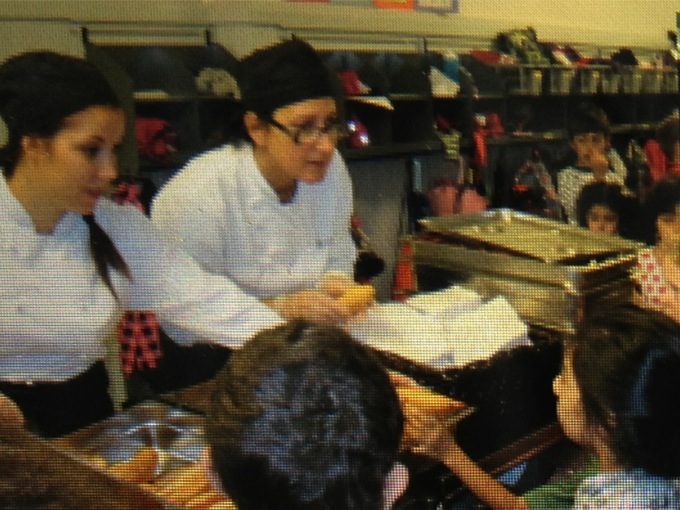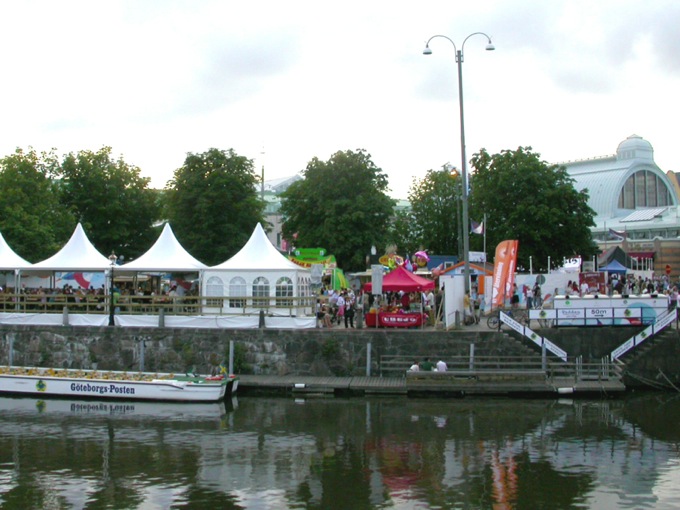Gothenburg / opportunities and challenges
High sustainable meals targets
The City of Gothenburg serves food in schools, hospitals and care centres: in total around 19 million meals per year. The Municipality focus therefore on sustainable meals to reduce the negative environment impact related to the production and consumption of food.
Local politicians set high targets and have made sustainable meal as a priority in the municipality budget. The objective is to reach 50 percent sustainable meals in the public sector by 2014.
| Class sustainable recipe competition | In addition to increasing the share of organically produced foodstuffs, some schools have begun to work with a commitment to specific issues, such as reducing the amount of plate waste. Another educational way of opening the eyes of schoolchildren has been to involve them in a recipe competition. The class that composed a meal consisting of a large share of organically produced foodstuffs, vegetables and legumes won. The winning recipe was then served in the school restaurant.The challenge for the Municipality is to find ways to reach these objectives. Gothenburg has already produced a strategy with measurable goals. The strategy focused mainly on increasing the share of organic and fair trade products, serving seasonally-adapted food only, giving priority to eco-labels, increasing vegetables and legumes share in public menus and reducing plate waste. The municipality also decided that all meat served in the city’s public sector should be organically produced, a challenge due to the high cost of organic meat that will reinforce the necessity to increase the share of vegetable and legumes. Products like coffee, tea, sugar and bananas should all be certified organic and/or fair trade.
The municipality intends to leverage on this large amount of meal it serves to both improve the availability of quality food among suppliers and shift eating habits in the population. A concrete action plan should now be defined to turn these strategies into operational changes and implementations with a regular measure of the progress made.
Coordination and transversality challenge
The city of Gothenburg has a decentralized administration. The sustainable meals objective is therefore both a challenge and an opportunity in terms of transversal and multilevel governance. All of the committees and boards are responsible for finding the best way to reach the target according to their conditions, following up their budgets, analysing progresses made towards sustainable meals and coordinating internal governance for reaching best synergies between each local action taken.
Co-ordinated purchasing and the environmental and social responsibility demands that are imposed on suppliers have helped the City of Gothenburg to get value for money, while also progressively reducing the burden on the environment.
| Environment diploma | The city has set up a labelling process for public events such as concerts or conferences with a set of sustainable criteria including organic catering, reduced waste, eco-label products, use of tap water for drinking, etc. in order to award the event with an “environment diploma”.
